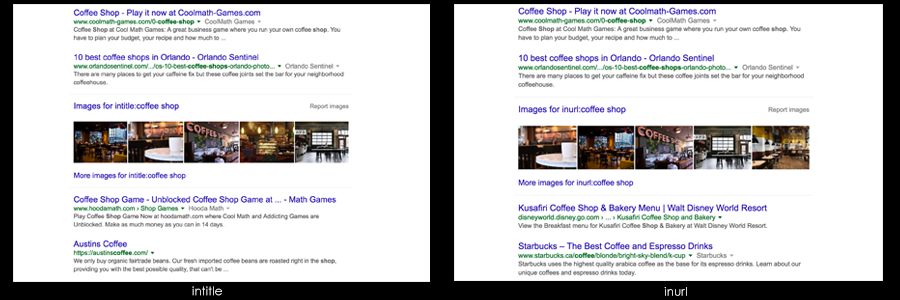In an era consumed with content marketing, one important factor is often overlooked – link building. Links are more than just a ranking factor, they are about connection. They’re about one webmaster reaching out to another and connecting. With an internet full of content, ideas, websites, blogs and more, it’s becoming harder and harder to get noticed. Many have been preaching for years that all you need to do is “publish great content” and people will come. While having good, useful content is great, if you aren’t connecting with others in your industry and having your content validated by links, you will most likely never get noticed.
Having a link building strategy is an absolute must in order to get your great content ranked. But not all links are created equal. Google, which was the first to rank sites by links, has gotten extremely good as sniffing out bad links. If your link stragety consists of buying spammy links or outsourcing to a cheap bulk linking service, you are putting your site at a huge risk of being penalized. As my coach Eric Ward says, “you should only go after links that you would want pointing to your site if Google didn’t exist.” In other words, you should only look to make connections that make sense and are mutually beneficial.
There’s Power in Link Prospecting
Link Prospecting, at its core, is about making valuable connections. As I stated above, links are essential if you want to get your content found. There are a number of ways to approach link building. Some prefer to outsource (I don’t recommend this), others put in the work and prospect for opportunities themselves. While the second approach takes longer, the links you can acquire are usually much more valuable!
Here are a few thought leaders in the prospecting community.
- Brian Dean, from Backlinko, and the “Skyscraper Technique”
- Eric Ward “aka Link Moses“
- Garret French of Citation Labs
While there are a number of great tools to help make the prospecting of links much easier, Link Prospector by Citation Labs is my favorite, nothing beats old fashion manual prospecting. Why? When it comes to the tools, the data is available to all those who use the tools as well. When doing prospecting by hand, you can find some great prospects that may have never been pulled by the automated tools. While manual prospecting does take some extra work, there are some hand “advanced search operators” you can use to speed up the process and uncover some great link opportunities.
8 Advanced Search Operators to Speed Up Link Prospecting
The beauty of advanced search operators is that they allow you to restrict the results just enough to help uncover some prime prospects. Here are the 8 most commonly used advanced search operators for link prospecting.
1. intitle:
This operator restricts results to documents that contain your phrase in the page’s title tag. Basic SEO principles teach us that it is essential to have your main page keywords in the site title tag. While not everyone on the web uses best practices, it safe to say the ones that do may have more of an inclination to link to another site that is trustworthy and in the same niche. For example, if you wanted to find sites that had the keyword “coffee shop” in their title tag you would place the following into the search bar. intitle:coffee shop
2. inurl:
Similar to the usage of intitle, inurl restricts the results based on the words inside the site’s URL. Because many of the CMS’s today use clean URLs most sites have their main keywords in their page URLs. Using the same phrase above but switching the advanced search operator to inurl, returns some different results.
3. site:
This will help restrict the top level domain (TLD). So say you are trying to find links to .edu sites that have coffee shops, you can query the keyword coffee shops site:.edu and you will only see results from .edu sites.
4. ~(synonyms):
Want to broaden your search a little further but not sure about all the keywords you should use? Using this advanced search operator, Google will return results that include synonyms to the keyword you are searching. This can be very helpful in your link prospecting brainstorming stage.
5. *(wild card):
The wild card helps you “fill in the blanks” of your research. For example, say you are looking for list posts, if you type “list-posts*” into Google they would return results with “list post,” “list posts,” “list posting,” etc. You can also combine this with other search operators to go even deeper. For example, ~coffee* will return synonyms of words with the root coffee.
6. -(minus):
As you might guess, the minus operator allows you to remove specific words from your results. Say your “coffee shop” search is turning up a lot of online retailers but you want to connect with local shops, you would search coffee shop -online. Once again, the minus can be combined with other operators.
7. intext:
This one’s pretty simple. The intext operator specifies that the word or phrase must appear in the text of the page.
8. “” (exact phrase):
This is probably the most common of all the operators. By adding quotations around a word or phrase it restricts Google to return an exact match of what is inside the quotation.
Using the above advance search operators with a combination of keywords and phrases, you should be able to find some really great sites to reach out to and connect with. Remember, when reaching out the the first goal is creating a value added connection. Then, once the relationship is established, you can seek the link. Good link prospecting and building takes time and patience, but it is well worth the effort. With every new connection, you grow your online footprint and have the potential to reach new heights! To learn more about link building and prospecting check out this book by Eric Ward and Garret French, ” The Ultimate Guide to Link Building.”
If you have any questions, comment below or send me an email at [email protected]. Good luck and happy prospecting!


